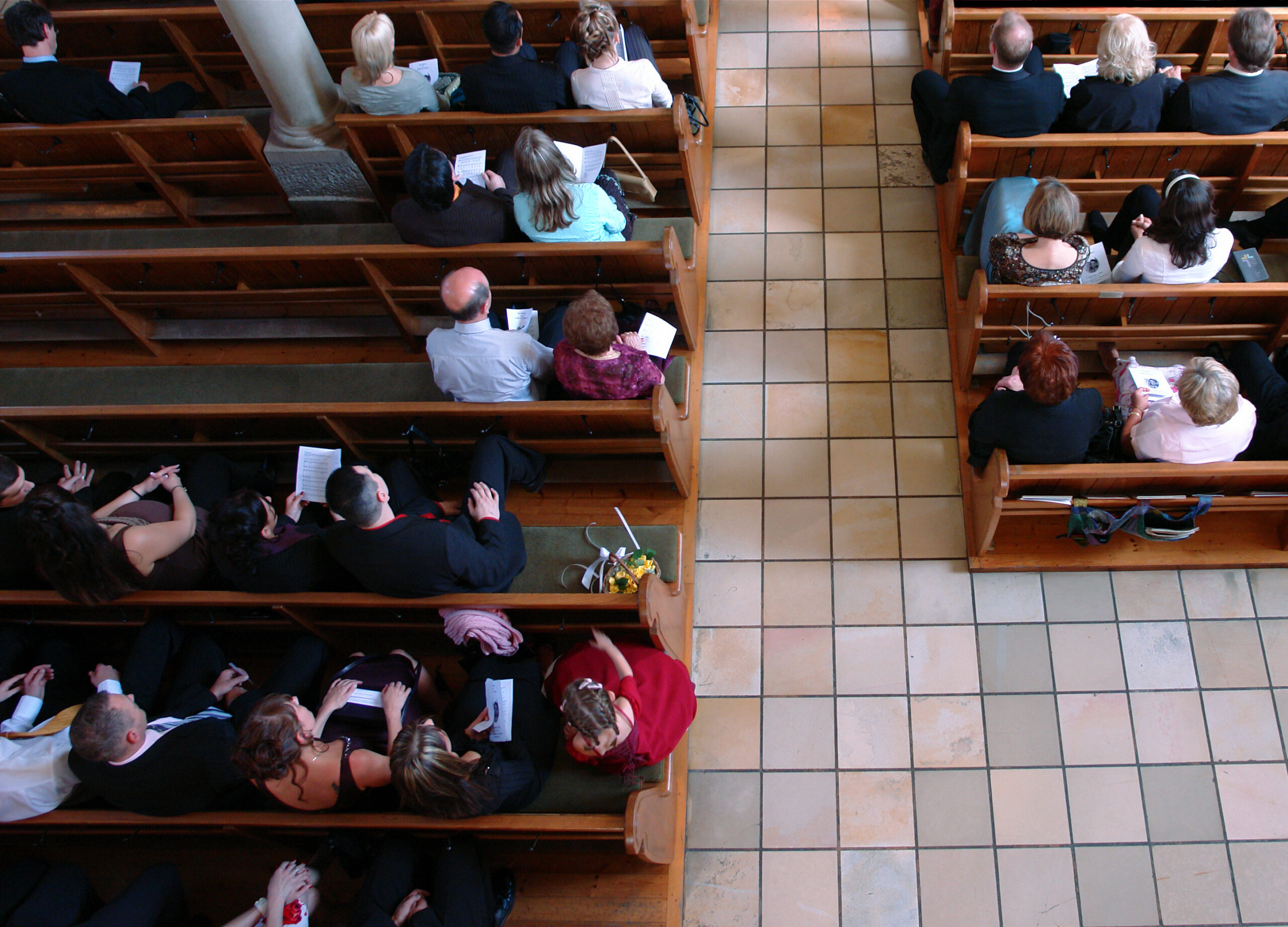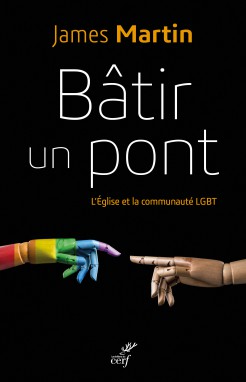During my previous career in Catholic publishing, a colleague and I once had a meeting with a bishop in his residence. The diocese was in the northeastern United States, where winters can be harsh. As we chatted, my colleague reminisced about a previous visit when he got stuck in the snow in the bishop’s driveway.
Hoping to free himself before anyone noticed, my colleague was amazed to find that the kindly bishop, donning a parka and stocking cap, was coming out the side door to help him. They weren’t having much luck with the car. Soon, the bishop’s next door neighbors—an affable gay couple—came to the rescue. Shoulder to shoulder, they pushed and the car was freed. The bishop, a bit chagrined, turned to me and chuckled, “Well, they are very nice neighbors.”
This story happened years ago, before I came out of the closet and before our society and the church became quite so bitterly divided. And in the time since the publication of “Fiducia Supplicans,” the Vatican declaration allowing church ministers to bless same-sex couples under certain conditions, the divisions in the church have been in stark display.
Amidst the hope for further change in some quarters, there is talk of disunity, confusion and schism in others.
Some African bishops have refused to impart such blessings. German bishops proceed in earnest. Amidst the hope for further change in some quarters, there is talk of disunity, confusion and schism in others.
Recently, my husband and I had dinner with another bishop—Episcopal Bishop Bonnie Perry of Detroit and her wife, the Rev. M. Susan Harlow, a United Church of Christ pastor. “When you are ready to come to a place where you will be spiritually fed and loved fully for who God made you to be, we are here,” Bishop Bonnie told me.
My gay friends sometimes ask me why I remain Catholic. They view Catholicism as a negative, anti-gay, force in our society. They don’t see the love of Jesus, his presence in the Eucharist, the richness of the sacraments, the beauty of the Gospel lived out, the vast charitable works or the defense of the defenseless. Instead, they see gay church employees fired for marrying their same-sex partners or the Catholic adoption agencies that refuse to serve LGBTQ couples.
My gay friends believe that the Catholic Church hates us, and some of them reject God because of that. Pope Francis is changing that perception.
My gay friends believe that the Catholic Church hates us, and some of my friends reject God because of that. Pope Francis is changing that perception. In a divided world, I believe the Holy Spirit is at work through the pope’s ministry to unite us.
Over Christianity’s 2,000-year history, each age has brought about its own challenges. When faced with something difficult and apparently irreconcilable in Catholicism, do people leave or stay? In our current age, many LGBTQ Catholics are an example of a group who have decided to stay.
As meaningful as it is that my husband and I can now receive a blessing from a Catholic priest, I encourage my fellow LGBTQ Catholics to consider how we can be a blessing to the church in return. “Fiducia Supplicans” says: “To God who blesses, we also respond by blessing.” A blessing is “a seed of the Holy Spirit that must be nurtured, not hindered.”
If it is the will of the Holy Spirit to unify a divided world, LGBTQ Catholics who stay faithful to themselves and the church have a role.
Our numbers are small, but the presence of LGBTQ Catholics can be a seed. If it is the will of the Holy Spirit to unify a divided world, LGBTQ Catholics who stay faithful to themselves and the church have a role. If the witness of our lives and the unique way we love is a blessing for the church, the Holy Spirit will make that seed grow and bear fruit. That can’t happen if we hide or leave.
Being Christlike to others is our baptismal call. Being a visible presence in our parishes, praying, volunteering and making ourselves known to our bishops will provide fertile ground for the Spirit to work. Like that kindly bishop and the affable gay couple next door, if we can stand shoulder to shoulder and push through together, the Holy Spirit will unite us.




Yes, pope Francis is changing perceptions, but does that change the lived reality on the ground? I know full well what my local bishop thinks about LGBTQIA+ people. His reaction to Fiducia Supplicans is published on the diocese website and leaves no doubt. He clearly isn’t interested in knowing us.
My main concern is for the safety of LGBTQIA+ people, at the very least emotional safety. So I’m surprised by the multiple sentences that put the onus on a population of people who have been deeply hurt by the church (incl. parishioners, clergy, hierarchy, culture, doctrine, or combination thereof).
There’s even a sense of assigning a fault on those of us who had to take some distance, with sentences like “ When faced with something difficult and apparently irreconcilable in Catholicism, do people leave or stay?” or “LGBTQ Catholics who stay faithful to themselves and the church”.
I’m glad that some LGBTQ Catholics have not had to bear the brunt of church homophobia, especially I suppose among the younger cohorts. That doesn’t give anyone the right to snub those who did have such painful experiences and whose lifelong trauma means that they just can’t take the risk of having any more.
I was raised Catholic but left the church for good 40 years ago when I came out as gay. Let’s be clear, the church is now blessing the people in same sex relationships NOT the relationships.
No disrespect, but I don’t understand why you would want to remain faithful to a religion that deems your relationship as sinful??? I think it would be a more meaningful witness for you to leave the church for another denomination that honors your relationship as holy and good. Help grow a more accepting denomination. Maybe then the Catholic Church would recognize the harm they’ve inflicted on LGBTQ people and continue to. The church’s stand on gender is horrendous I think we need more Catholics, not only those in the LGBTQ community, to say enough already. I’m done.